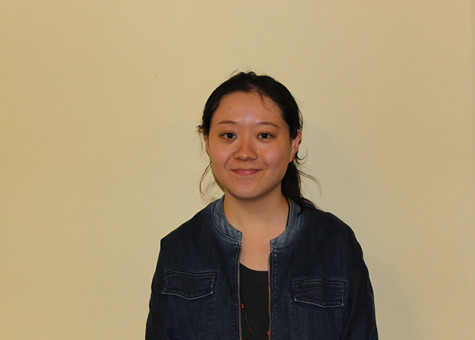Last Thursday, a Chinese language and culture circle drew more than 10 students and faculty members to the MountainCat Club.
The program’s presenter, senior Iris Yang Haoxi, took her audience on a virtual tour of China through a variety of activities and media displays.
The program topic of the week was Geography of China. Yang was able to weave Chinese language learning into discussions.
The official Chinese language is Mandarin. The language has many variations regarding dialects, among them Cantonese is the most widely used.
Yang first introduced the pronounciation of the word “China” in Mandarin, the audience then repeated after her, following which she taught them how to say “Shanghai,” “Beijing,” “Shenzhen” and “Hong Kong” in Mandarin.
A PowerPoint Yang created was displayed on a big screen using a projector. The words were shown in English with the written form of simplified Chinese next to them.
The written form of Chinese consists of separate units named characters, different combinations of characters make different words, similar to different combinations of letters than make up different words in English.
Freshman Gretchen Rundorff, who attended the program, said she had always been interested in Eastern civilizations and wanted to learn languages that use characters rather than the Roman alphabet.
Freshman Kyle Bautista said he started learning to speak Mandarin when he worked at a Chinese restaurant in Philadelphia, where all its staff, except for him, were Chinese.
Upon entering Pitt-Johnstown, he said he would talk to Chinese students on campus to practice his Mandarin.
As a fluent speaker of Spanish, he said he learned that the most effective way to acquire a new language is by practicing it.
Bautista is not the only one who speaks multiple languages.
Rundorff speaks five languages other than English. Yang’s mother tongue is Mandarin, however, she also speaks English, Korean and French.
“English is my native language, and I am currently studying/ maintaining German, French, Spanish, Latin, and Arabic,” said Rundorff.
Her secret to language learning is similar to Bautista’s, of which she referred to as consistency.
“I think that consistency is one of the most important things when learning a foreign language because, if you are not spending time with the language on a regular basis, then chances are that you will forget a good part of what you already know,”said Rundorff.
The three students who excelled in language learning share the same passion about language as a whole.
”I had the most wonderful experience learning Korean,” Yang said. “I taught myself by watching a lot of Korean shows and movies, and I found the result satisfying.
“After I came to UPJ, I picked French as my third language. I took a lot of French classes, and now I’m even thinking about applying for the Pitt Study Abroad Program in Paris,” she said.
Rundorff said learning languages has a host of benefits from her point of view.
“Knowing multiple foreign languages really adds to my knowledge and worldview. I think that each language has its own character, and that each language that I learn adds a bit to my personality,” she said.
Other than personal satisfaction, Yang said she sees language as a basic tool for her future career as a marketing student.
“The more languages I speak, the better I can handle them, the greater chance that I would get success in helping companies expand their international business.”
Years of practice seems to be the key to success in language learning.
Yang said she started learning English before elementary school under the influence of her mother, who was then a high school English teacher.
“Learning languages does not necessarily cause any drawbacks. The only thing that I would complain about is that learning language(s) could be time-consuming.”
Rundorff said she started learning German about seven years ago, and then she started learning French a little over four years ago. She said she speaks both languages pretty well.
She said it can be difficult making sure that she is devoting enough attention to each of her passions.
Bautista said it took him four years before he reached the level of fluency in Spanish now, and he is still taking a Spanish class on campus.
Yang said she sees the efforts and time as sacrifices that one particularly needs to pay for when achieving something.
“Just like Rome is not built in one day, learning language is not something that one could finish in a short period of time,” she said.
Yang also stressed the importance of immersing oneself in the environment and culture of the language.
“However, when the condition is limited, speak(ing) and listen(ing) as much as possible becomes the best way of learning.”
As to the Chinese language circle, Rundorff said it will definitely be helpful in achieving her goal in Chinese, and she can’t wait to learn more from the next circle event, which will be on October 15th.

